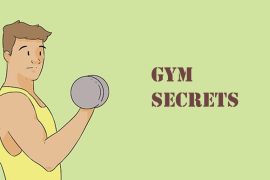Entering your 20s marks a crucial phase where you likely possess the energy and resources to establish a fitter version of yourself. This period is often considered the prime of life when health and fitness may not be a top priority. However, embracing a proactive approach to your well-being during this time can cultivate habits that contribute to long-term health and prevent age-related conditions.
Drawing from two decades of experience in fitness, it becomes evident that certain principles universally work for individuals of any age. Initiating a commitment to health and fitness in your 20s lays the foundation for sustainable habits. This proactive approach not only enhances your current well-being but also serves as a preventive measure against potential health issues in the future.
For those aiming to build muscle and reduce body fat, a strategic training regimen is essential. Training each muscle group at least twice per week, incorporating around 12-15 working sets per muscle, and allowing 48 to 72 hours of recovery before targeting the same muscle again is considered effective. This approach necessitates lifting weights 3-5 times weekly, promoting consistent physical activity.
Understanding and implementing these principles early on can accelerate your progress and contribute to a healthier, more active lifestyle in the long run. Embracing these habits during your 20s ensures a foundation for continued well-being as you age.
As the aging process unfolds, muscles are prone to atrophy or breakdown, and bones may become weak and brittle. Incorporating resistance training into your routine becomes crucial in countering these effects. Committing to lifting weights at least three times a week proves beneficial in building stronger muscles, promoting joint health, and preventing injuries. Variation in weight training angles becomes essential for comprehensive muscle development. For instance, a chest workout should include a mix of flat bench, inclined bench, and fly movements to achieve optimal definition.
While the physical aspect of training is vital, equal attention should be given to recovery and mindfulness. Rest days should not be synonymous with sedentary habits but rather an opportunity to engage in activities that are often neglected. Full-body mobility drills and extended cardio sessions are high-return activities that contribute to faster recovery and, consequently, accelerated progress. Prioritizing recovery is especially crucial as energy levels peak in early adulthood, tempting individuals to push their bodies excessively.
Acknowledging the potential long-term consequences of overexertion, experts emphasize stress-relieving methods and quality sleep. Stressors, when not managed, can negatively impact the body over time. Therefore, focusing on adequate recovery, stress reduction, and quality sleep ensures a holistic approach to maintaining health and fitness as one ages.
The emphasis on technique over intensity in the gym is crucial for optimal and sustainable fitness outcomes. While the temptation to lift heavier weights and push for intense workouts is ever-present, prioritizing proper technique is paramount. Flawed techniques not only result in suboptimal muscle engagement but also increase the risk of injuries due to compensations by other muscle groups. Choosing to lift slightly lighter weights with correct form ensures a more effective and safer workout, allowing for long-term progress without compromising overall health and well-being. In the pursuit of fitness goals, precision and proper execution prove to be more valuable than sheer intensity.
Easy Fitness Tips to Embrace in Your 20s:
1: Learning About Fitness
- Knowledge is crucial in navigating the fitness industry filled with misinformation.
- Understanding the science behind health and fitness enables distinguishing between credible advice and dubious claims.
2: Starting Small
- Avoiding drastic changes and instead focusing on small, sustainable lifestyle adjustments.
- Building healthy habits over time, such as reducing soda intake or taking the stairs, creates a more manageable and lasting impact.
3: Strength Training
- Initiating strength training in your 20s aids in building muscle, preventing fat gain, bone density loss, and maintaining mobility.
- Establishing a strong foundation early facilitates long-term fitness and reduces the risk of various health conditions.
4: Cardio
- Regular cardiovascular exercise ensures a healthy heart.
- Easily incorporable activities like swimming, running, or even daily routines like taking stairs contribute to overall cardiovascular health.
5: Making Healthier Food Choices
- Being mindful of dietary choices and gradually incorporating healthier options.
- Allowing occasional indulgences while aiming for a balance of healthy eating around 80% of the time.
6: Getting Enough Sleep
- Acknowledging the importance of adequate sleep for cognitive function, weight management, immune health, and overall well-being.
- Striving for 7-9 hours of sleep per night contributes to optimal physical and mental health.
7: Knowing When to Pull Back
- Recognizing the significance of rest and recovery in the fitness journey.
- Avoiding excessive exercise and understanding that progress occurs during rest.
8: Learning to Enjoy the Process
- Shifting focus from end goals to appreciating the journey of fitness.
- Enjoying the process fosters sustainability and reduces impatience.
9: Not Comparing Yourself with Other People
- Acknowledging individual progress and avoiding unhealthy comparisons.
- Recognizing personal growth and celebrating achievements without feeling inadequate.
10: Staying Hydrated
- Emphasizing the importance of staying hydrated for numerous health benefits.
- Drinking water regularly supports bodily functions, curbs cravings, improves mood, and enhances overall well-being.
These habits collectively provide a holistic approach to health and fitness, emphasizing gradual changes, informed choices, and a positive mindset for long-term success. Your willingness to offer assistance in others’ fitness journeys is commendable. For anyone with questions or seeking guidance, your expertise is a valuable resource. This comprehensive approach to fitness covers not just the physical aspects but also the importance of technique, variety, and recovery for long-term success.
Disclaimer:
The information contained in this article is for educational and informational purposes only and is not intended as a health advice. We would ask you to consult a qualified professional or medical expert to gain additional knowledge before you choose to consume any product or perform any exercise.








